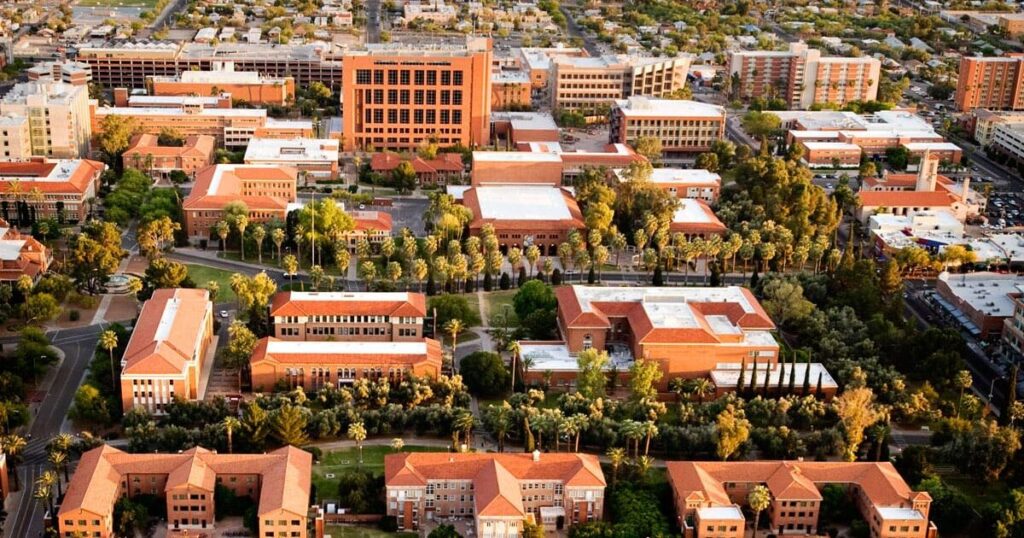Recent research highlights a significant political imbalance among faculty members at the University of Arizona, as reported by The College Fix. A staggering 28-to-1 ratio of Democrat to Republican professors was identified across 12 academic departments, underscoring a prevailing trend of leftist dominance in U.S. academia. The study revealed that out of 369 faculty members, only 7 identified as Republicans, while a substantial majority of 222 were Democrats. Alarmingly, five departments—communications, classics, sociology, religious studies, and gender and women’s studies—had no Republican representation at all. This discrepancy translates to a mere 3.4 percent of identified professors being registered Republicans, reinforcing concerns regarding intellectual diversity and the availability of varied viewpoints in educational settings.
The methodology behind the research involved the analysis of voter registration data obtained from Pima County, focusing solely on professors rather than including adjuncts or lecturers. The findings paint a broader picture of an academic landscape increasingly characterized by homogeneity in political ideology. In particular, the gender and women’s studies department exhibited the sharpest contrast, consisting of 37 Democrat professors without a single Republican counterpart. Such a lack of ideological variation raises serious questions about the quality of discourse and critical thinking opportunities available to students, who might be limited in their exposure to divergent perspectives.
In response to The College Fix’s findings, the University of Arizona issued a statement asserting its commitment to equal employment opportunity laws and non-discrimination policies. The administration emphasized the importance of diverse perspectives for enhancing students’ critical thinking and fostering respect for differing views. Notably, they pointed out having hosted speakers from various political backgrounds, including well-known figures like Charlie Kirk and Tulsi Gabbard. Despite these claims of inclusivity, the glaring absence of Republican faculty members in significant departments casts doubt on the university’s assertion of promoting a comprehensive range of viewpoints in its academic environment.
Critics, such as Chance Layton, Communications Director for the National Association of Scholars, argue that the stark political imbalance restricts the scope of conversations and academic discourse available to students. Layton indicated that a predominance of a single political ideology might inhibit the development of crucial critical thinking skills that emerge from engaging with a variety of perspectives. To address this concern, he suggested reassessing the current hiring practices, including the elimination of “diversity rubrics” and “diversity statements” that may inadvertently favor certain political ideologies over others.
The implications of such profound political homogeneity in academia extend beyond the faculty ranks; they can significantly impact students’ educational experiences and their future engagement in civic life. A lack of exposure to opposing viewpoints can lead to echo chambers where students are not adequately prepared to navigate the complexities of real-world issues. Instead of developing the ability to critically analyze a spectrum of ideas and arguments, students may find themselves ill-equipped to understand or engage meaningfully with individuals who hold differing beliefs.
Ultimately, the findings at the University of Arizona highlight a broader challenge facing many academic institutions in the United States. As concerns about ideological bias and lack of representation continue to swell, universities may need to reassess their hiring practices and policies to foster a genuinely pluralistic environment. Doing so may be essential to preserving the foundational principles of higher education, which include developing critical thought, respectful dialogue, and the free exchange of ideas across diverse perspectives. Without significant changes, the future of academic discourse may increasingly mirror the political divisions present in broader society, leading to further polarization both academically and socially.

